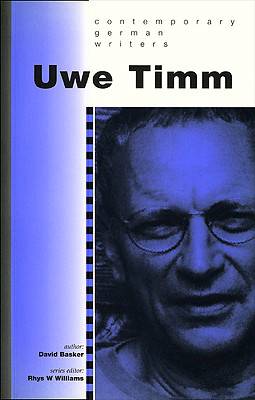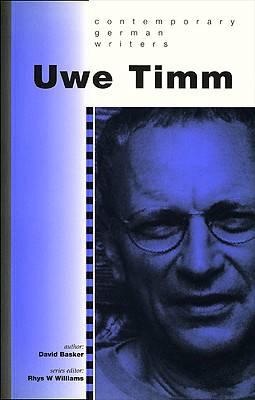
- Retrait gratuit dans votre magasin Club
- 7.000.000 titres dans notre catalogue
- Payer en toute sécurité
- Toujours un magasin près de chez vous
- Retrait gratuit dans votre magasin Club
- 7.000.000 titres dans notre catalogue
- Payer en toute sécurité
- Toujours un magasin près de chez vous
Description
Uwe Timm belongs to the generation of writers whose early careers were shaped by personal experience of the student movement in the Federal Republic of the late 1960s. Heißer Sommer, Timm's first novel, deals directly with such individual experience of the protests and with a sense of disillusionment which followed. The author's subsequent novels have, among many other topics, focused on the issues of colonialism and the environment, while his shorter prose works give literary expression to his personal 'Ästhetik des Alltags'.
Uwe Timm follows the pattern of earlier volumes in the Contemporary German Writers series. It opens with a previously unpublished prose piece by Timm, followed by an interview that the author gave during his visit to the Centre for Contemporary German Literature at University Wales Swansea. Subsequent critical essays focus on the main areas of Timm's work, including the student novels (Heißer Sommer and Kerbels Flucht), anthropological elements in Timm's work, and an assessment of his shorter prose work in the light of the essays on literary technique contained in Erzählen und kein Ende. The volume concludes with a full bibliography of primary and secondary material.
Spécifications
Parties prenantes
- Auteur(s) :
- Editeur:
Contenu
- Nombre de pages :
- 148
- Langue:
- Anglais
- Collection :
Caractéristiques
- EAN:
- 9780708314470
- Date de parution :
- 13-04-99
- Format:
- Livre broché
- Format numérique:
- Trade paperback (VS)
- Dimensions :
- 138 mm x 216 mm
- Poids :
- 238 g







